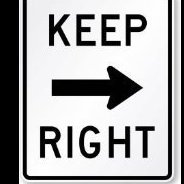Bangkok Bank - How can I open a direct deposit account so I can do bank transfers from a USA bank ?
-
Recently Browsing 0 members
- No registered users viewing this page.
-
Topics
-
Popular Contributors
-
Latest posts...
-
174
Community German National Rescued After Reportedly Being Left Homeless in Jomtien
And in 2009 my wife got 100% of the house I'd paid 100% for. She sold it in 2023 for 460kGBP. -
11
UK passport checking
I have done the same ,,,it's for next of kin ,you can fill it in twice with 2 different names ... is that you are referring to ? regards worgeordie -
76
Anti-vaxers relying on discredited doctor's claims about COVID vaccines... again!
Ohh look !! Selective quoting… great to see that you’ve learned from your masters 👍🏼 -
9
Waiting by the Phone Like a Jilted Tinder Date - Making America Wait Again???
Another Brit with his "knickers' in a bundle. There must be something better to do in England than complain about the American President. But I guess when you have boring, cry baby English football to watch, anything is better to do than revolve your life around that so called sport. -
95
-
19
Report Thai Teenager Missing for a Week: Family Appeals for Public's Help
A 17-year-old girl goes missing and all you can do is post innuendoes of she might be doing? That's downright disgusting and reveals what sort of man you are. I am the father of 3 daughters, 2 in UK with an 18-year-old daughter here in Thailand. If you said that to me face to face - I would be the only one to leave with a face. How dare you ridicule the disappearance of a young teenage girl, because of your vile, sordid attitude to Thai girls/women?!
-
-
Popular in The Pub
-










Recommended Posts
Create an account or sign in to comment
You need to be a member in order to leave a comment
Create an account
Sign up for a new account in our community. It's easy!
Register a new accountSign in
Already have an account? Sign in here.
Sign In Now